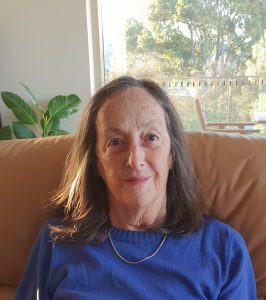When the frigid winter winds sweep into Tasmania and wood heater smoke fills the air, retiree Mary Keller knows it’s time to keep her doors and windows sealed and guard her lungs until warmer weather returns.
The reason for Mary’s extreme caution is her asthma, which was only recently diagnosed at age 72, known as adult-onset asthma.
Asthma remains a significant health condition in Australia, with the 2021 Census revealing it is one of the most common three health conditions in Australia, behind only arthritis and mental illness.
 Females are more likely than males to have asthma (12.0% compared to 9.4%). Women over 55 account for well over 50% of annual asthma deaths, and asthma deaths of women over 75 outnumber men of the same age by well over 2 to 1.
Females are more likely than males to have asthma (12.0% compared to 9.4%). Women over 55 account for well over 50% of annual asthma deaths, and asthma deaths of women over 75 outnumber men of the same age by well over 2 to 1.
“It was never in our family, I never had it as a child or anything, and it was totally unexpected,” Mary explained about her asthma diagnosis.
“I just noticed a couple of years ago, when I walked uphill, I was puffed, when I walked up the stairs I was puffing, and when I was doing a bit of gardening, puff puff, and I thought, ‘Heavens, maybe there’s something wrong with my heart’.”
A visit to her doctor, who did a lung function test, confirmed that Mary had asthma – cold air and smoke are among common causes of asthma flare-ups. Her story highlights the importance of having your doctor diagnose any breathing difficulties.
“I just thought, ‘Goodness, that’s a bit late in the piece to be getting something like that’. I always thought it was a childhood disease because I know some of my friends when I was at school, they had it,” Mary said.
“Well, I’ve always been a bit of a late developer, I must say,” she added with a laugh. “So maybe that’s part of it.”
Health data confirms that asthma is most common in childhood up to age 14. But it can emerge at any age, even in a person’s 50s, 60s, and 70s. There are about 2.7 million people in Australia with diagnosed asthma, and many more who, like Mary initially did, ignore their symptoms with the belief their breathlessness is due to poor fitness.
Asthma Australia recommends anyone, but particularly adults over 50, who get out of breath more often, to not accept it as ‘a normal part of aging’. Talk to a doctor to test for conditions like asthma, so that the right treatments can be implemented.
“The thing is, if people do feel puffed, they need to seek their doctor’s advice earlier rather than later,” Mary said.
Thankfully for Mary, her doctor recognised her symptoms and took her new health challenges seriously. He prescribed a reliever, which she uses as needed, and a preventer for morning and night. It helps reduce her risk of flare-ups – and as for her environmental triggers, she avoids those as best she can.
“I was surprised, and I thought, ‘Why am I getting it now, in my dotage?’, getting asthma, but I’m managing it – I just have to keep away from the woodfire heaters, from breathing in the smoke, and the other thing that affects me too is the cold,” she said.
“And we’ve had a lot of cold weather lately and consequently there’s a lot of wood smoke about the place.
“I’m avoiding it as much as I can – and looking forward to summer.”
People can stay connected with Asthma Australia’s Asthma Assist program, which provides a regular e-newsletter, brochures, videos and more to help inform and support those living with asthma. Click here for details: www.asthma.org.au/assist
Further support is available by speaking to an Asthma Educator at 1800 ASTHMA (1800 278 462). For information, visit: www.asthma.org.au/1800asthma
For more information about living with asthma, visit the Asthma Australia website: https://asthma.org.au/treatment-diagnosis/live-with-asthma/
For more information: Teresa Vella, Brand and Engagement Lead 0403 895 144 e. tvella@asthma.org.au





 1800 278 462
1800 278 462


